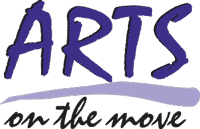DRAMA ACTIVITIES FOR KS3
- Use drama games and exercises (physical, verbal or creative) to: introduce the main theme of the lesson; remove inhibitions; increase concentration and focus; help pupils to listen; develop imagination, creativity, personal, social or emotional values of the group; mix up group positions and dynamics; arrange groupings to reflect differences of sex, aptitude and ability. Spend no longer than 10 minutes on any drama game.
- Introduce more activities which require negotiation skills and the ability to work with others, solving the practical problems that arise through working as part of a group.
- Vary the groupings – from individual and pair work, to small groups of differing sizes and whole class work.
- Explore issues and dilemmas through improvised scenes and such methods as Hotseating and Thought-tracking.
- Use role play to identify with characters and actions, for example in a dramatised story or as audience. Encourage invention and development of convincing roles in specific situations.
- Encourage knowledge of how to structure dramatic sequences in order to convey meaning and expect students to achieve more sophistication in their selection and execution.
- Make students aware of the need for dramatic conventions, for example, light, dark, movement, pause, sound, silence, quick and slow.
- Use a variety of dramatic forms and methods to express ideas and feelings, for example, mime, movement, costume, proxemics, make-up, lighting, sound and make-up.
- Develop students’ awareness of the concept of ‘audience’ – both as a spectator and as a performer.
- Expect students to be able to work, listen, and focus for sustained periods of time.
- Encourage students to develop a full vocabulary of drama and theatre using appropriate terminology and language.
- Explore a wide range of cross-curricular themes and issues to develop sensitivity and empathy. Try to make these both varied and relevant.
- Make drama lessons a mix of pure drama work, covering exploratory processes, and theatre-based work covering performance elements. Try to ensure that performance doesn’t outweigh process.
- Use evaluation to develop critical awareness of students’ own achievements as well as learning how to evaluate others’ work.
- Students should devise, write, produce and perform their own material, including monologues, short play scripts, sketches, and Theatre in Education pieces and other material for younger audiences.




 This site uses cookies for tracking and statistical purposes. Please read our
This site uses cookies for tracking and statistical purposes. Please read our